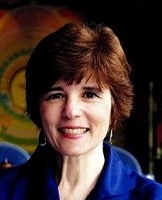Deborah Dezure, PhD
Assistant Provost for Faculty and Organizational Development Emerita at Michigan State University
HERS Institute Alumna, Class of 1998

As a HERS Institute alumna from the class of 1998 in Bryn Mawr, PA, Deborah DeZure (Ph.D.) has made incredible strides in her career. She currently sits as Assistant Provost for Faculty and Organizational Development Emerita at Michigan State University. As Deborah reflects on pivotal moments in her career, we were fortunate to hear about her HERS Institute experience and how it helped her move forward in her career within professional development and higher education.
What brought you to the HERS Institute? Did anyone encourage or support you to apply and attend?
In early 1998, Martha Tack, the Associate Provost for Academic Affairs at Eastern Michigan University, encouraged me to attend the HERS Summer Institute, offering to nominate me and cover all expenses. Dr. Tack’s own research focused on the need to encourage women to pursue leadership roles, so her actions reflected her evidence-based belief in the value of actively supporting women in higher education through training and development. At the time, I was director of the university’s teaching center, a mid-level management position reporting to the Office of the Provost. Her support was tremendously validating, enabling me to see myself as a leader in a way I had not seen myself before. Thus, even before I arrived at HERS, the power of participation had already begun to redefine and empower me.
What value did the HERS Institute bring to you in your career?
The HERS Summer Institute was a transformative and empowering experience for which I am forever grateful. This was not only my first exposure to leadership development, but also my first opportunity to participate in an all-women learning environment. That in itself was revelatory, enabling me to experience the power of all-women experiences to promote reflection, share experiences, challenges and solutions – many of which were gendered; and develop nurturing collegial relationships.
What was the curriculum like at the 1998 HERS Institute in Bryn Mawr?
The curriculum was well designed and delivered and tailored to the needs of women leaders. The curriculum, at that time, focused on academic affairs, the broader higher education context and external relations, budget, and individualized professional planning with a coach, each lasting a week. These were complemented by numerous formal and informal opportunities for socialization among the women participants who themselves represented outstanding and diverse models of leadership and collegiality. The curriculum and its design left a lasting impact on me as I increasingly took on roles that integrated leadership development for current and future leaders and administrators. Each element was indeed critical to understanding higher education and to serving as a change agent and leader.
